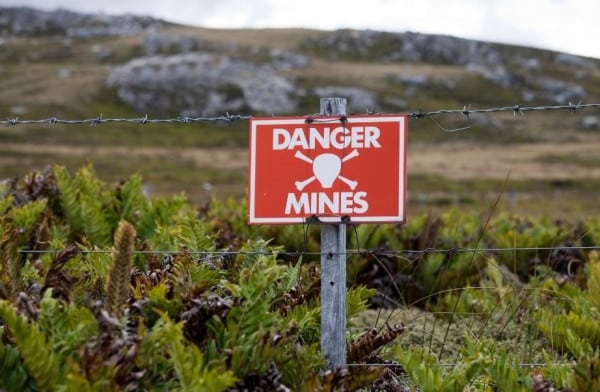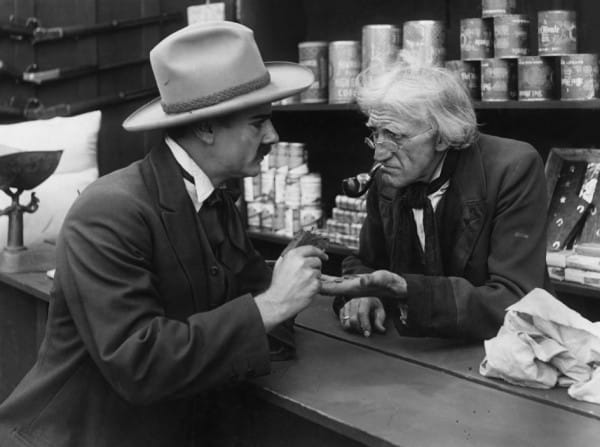
Every business has a narrative. Comprised of the activities and commitments that define how you operate; this narrative is informed by nuance and points of difference.
It speaks to the little things that you do for your customers that your competitors don’t. Your business narrative lays out the things that speak to the character of your business. The parameters that guide who you hire, how you operate. It tells the story of the things that your best and most invested customers swear by—the reasons they recommend your services to their friends.
Every business interacts with the internet. For many, the internet serves as the business’ primary storefront. For others, your website and the reviews given by customers define how the outside world (the universe of potential clients) evaluates whether or not to do business with you.
There is opportunity at the intersection of business narrative and internet. When properly leveraged, this intersection creates immense value. Artfully relating your business narrative creates a powerful deposit of relational equity with customers.
Failing to articulate the narrative that defines your business, however, generally allows one of two things to happen:
- Your narrative is undefined and new customers fail to see your points of difference. You’re then lost in a sea of unremarkable options, with customer choice driven by luck or bargain hunting.
- Worse yet—someone else, maybe your competitor or maybe some disgruntled moron on Yelp, defines it for you. Someone else paints the picture of your business for the world.
As powerfully as this narrative can influence the trajectory of your business, few take the time to define it. What follows is some context to the benefits derived from defining your narrative and how this importance has evolved through time. In future posts, we’ll run through how to create a powerful business narrative and where to post it once you have it.
Defining Your Business Narrative via The Internet: Equal Parts Trash Heap, Minefield and Opportunity Factory
One of the central reasons why defining your narrative is so important relates to the internet itself. The omnipresence of the internet can make it easy to forget that 30 years ago it did not exist (at least as intrusively as it does today). It can be easy to look past the fact that humans—and the ways in which we think, act and make decisions—were forged during a history that did not include screen time or emojis.
Considering the different contexts of the internet, and the ways in which humans interact with it, is a valuable starting point for understanding the importance of defining your business narrative.

1. The internet is a giant trash heap. Were you to rank its contents in order by volume, you’d likely have to wade through mountains of pornography, dark web Ponzi schemes and crypto scams before you came to e-commerce and pictures of kittens.

2. The internet is a minefield. Speaking on a purely global average, on the internet there might be 5 or 50 or 500 swindlers, click baiters, and multi-level marketing schemers for every one well-intentioned business owner such as yourself. (Please note, I haven’t researched these statistics… but if you don’t believe them just Google “how to make money on the internet.”)

3. The internet is an opportunity factory. The internet is the most powerful, interconnected global marketplace in the history of our world or any other. Your business has a digital presence and so too does every single one of your current and potential customers. Yes, even if you are in the business of servicing hermits who live off the grid in the middle of the desert.
How People Relate with People is Not Unlike How They Relate with the Internet
As complicated, unique and different as we’d all like to think that we have become, people are still people. The base needs and desires that have defined the entirety of our collective history still apply in our modern, digital age.
People want to feel safe. We like to be part of communities. We prefer to feel good about those we interact with in our personal and business lives.
The digital age has, however, thrown a few wrenches into the equation. The hours of face-to-face, person-to-person interaction that defined the lives of our Great Grandparents have been replaced, for many among us, by communication through computer and phone screens.
The physical communities—town squares and store fronts- through which our predecessors conducted business have been replaced, in many instances, by e-commerce sites and online communities. The physical settings of our interactions may have changed, but the fundamentally human dimensions have not.
My wife, Alex, is a psychotherapist and executive coach. She understands people and has a special ability to help them feel and work better. Her typical client is a high achieving executive or business owner who struggles with burnout or high functioning anxiety.
One day, in a conversation that was totally unrelated to this article, she asked me, “Do you know why so many people are anxious these days?” I did not know and told her as much. “Because so many people are lonely,” she said.
The Intersection of Internet and Community
The true value of defining your business narrative comes when you consider your universe of potential and existing customers in these terms. Your customer universe is a group of people searching a vast minefield of distraction populated by charlatans, bots and wastes of time. They are a group of people who are looking for confidence, comfort and community. They are a group of people whose need of a service brought them to internet to find it.
This universe of potential customers is in need of not only the service that your company provides, but of confidence and assurance that your business will take care of them. Community is a term that is often conflated these days. At its most basic and fundamental sense, the business that imparts confidence and peace of mind to its customers provides this sense of community.
This is how people work. This is how we’ve always worked.
A hundred years ago, our progenitors’ choice of merchant was informed by physical storefronts and the ways in which shops made them feel. “This is my butcher shop. I am honored that you have chosen to allow my family to feed yours.”

Our Great Grandparents would have conversed with this butcher every time they entered the shop. The way that he carried himself– the ways in which he greeted them– informed the way that his customers thought about his business. Person to person interaction passively informed the butcher’s business narrative.
Fast forward, 100 years. The internet is a portal through which we conduct business and lead our lives. Many of us are lonely. All of us feel the need for connection. Every time we search for a good or service, each of us is drowning in choice, distraction and attempts to captivate our attention.
Defining Your Narrative: An Invitation to Relate with What Makes Your Business Special
So, you ask, “If we do not physically interact with our customers before doing business with them, how can we differentiate ourselves?”
How does a business frame the way its universe of potential and existing customers should think about it? That my friends, is where the business narrative comes in.

An artfully executed business narrative functions as a welcome mat. It informs your universe of customers that you are good and friendly.
You know that you do things the right way. You know that your commitment to quality and to customers is somehow different and better than your competitors. You know the origin story of your business.
You know all of these things. Now it’s time to tell your customers. What’s more, they’re asking for it and it will impart confidence they need to feel good about doing business with you. Every business has a narrative.
- How to Write Your Business Narrative - May 13, 2024
- The Importance of Defining Your Business Narrative - April 5, 2024
